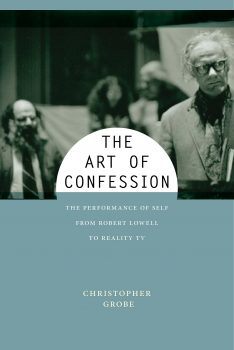Brian Glavey in the Los Angeles Review of Books:
 Is confessional poetry still interesting in our age of oversharing? Is it even confessional? If my students are any indication, readers immersed in multiple platforms of never-ending self-disclosure might not find the poetry of Robert Lowell or Anne Sexton particularly exhibitionist. Lowell’s Life Studies is personal, certainly, but not nearly as personal as your average Instagram story, not as revealing as the anecdotes my students are apt to volunteer in and after class, maybe not as real as the Real Housewives. Lowell famously described his turn toward the personal as a movement away from a rarefied and bloodless commitment to craft, “a breakthrough back into life” that promised to reenergize the writers of an entire generation. A half-century on, the subversions of their self-exposure can be harder to recognize. In the full thrall of TMI, it might be that the strangeness of confessional poetry has more to do these days with its being poetry than its being confessional. This development is not necessarily a bad thing. Indeed, I often try to highlight something like this dynamic by playing for my classes a recording of Sylvia Plath reading “Daddy” a few months before her death. It is an electrifying performance that completely reconfigures the way my students approach her poems. Plath brings to the text a theatrical intensity far flung from the rhetoric of therapeutic unburdening that the “confessional” label seems to suggest. As Plath declaims it, “Daddy” sounds more like the soliloquy of an Elizabethan villain than a straightforward exercise in self-expression. It is not so clear that such words unearth any sort of inner truth about the speaker, but they are certainly dramatic.
Is confessional poetry still interesting in our age of oversharing? Is it even confessional? If my students are any indication, readers immersed in multiple platforms of never-ending self-disclosure might not find the poetry of Robert Lowell or Anne Sexton particularly exhibitionist. Lowell’s Life Studies is personal, certainly, but not nearly as personal as your average Instagram story, not as revealing as the anecdotes my students are apt to volunteer in and after class, maybe not as real as the Real Housewives. Lowell famously described his turn toward the personal as a movement away from a rarefied and bloodless commitment to craft, “a breakthrough back into life” that promised to reenergize the writers of an entire generation. A half-century on, the subversions of their self-exposure can be harder to recognize. In the full thrall of TMI, it might be that the strangeness of confessional poetry has more to do these days with its being poetry than its being confessional. This development is not necessarily a bad thing. Indeed, I often try to highlight something like this dynamic by playing for my classes a recording of Sylvia Plath reading “Daddy” a few months before her death. It is an electrifying performance that completely reconfigures the way my students approach her poems. Plath brings to the text a theatrical intensity far flung from the rhetoric of therapeutic unburdening that the “confessional” label seems to suggest. As Plath declaims it, “Daddy” sounds more like the soliloquy of an Elizabethan villain than a straightforward exercise in self-expression. It is not so clear that such words unearth any sort of inner truth about the speaker, but they are certainly dramatic.
In The Art of Confession: The Performance of Self from Robert Lowell to Reality TV, Christopher Grobe makes a powerful case that this connection between confession and performance is no coincidence.
More here.
